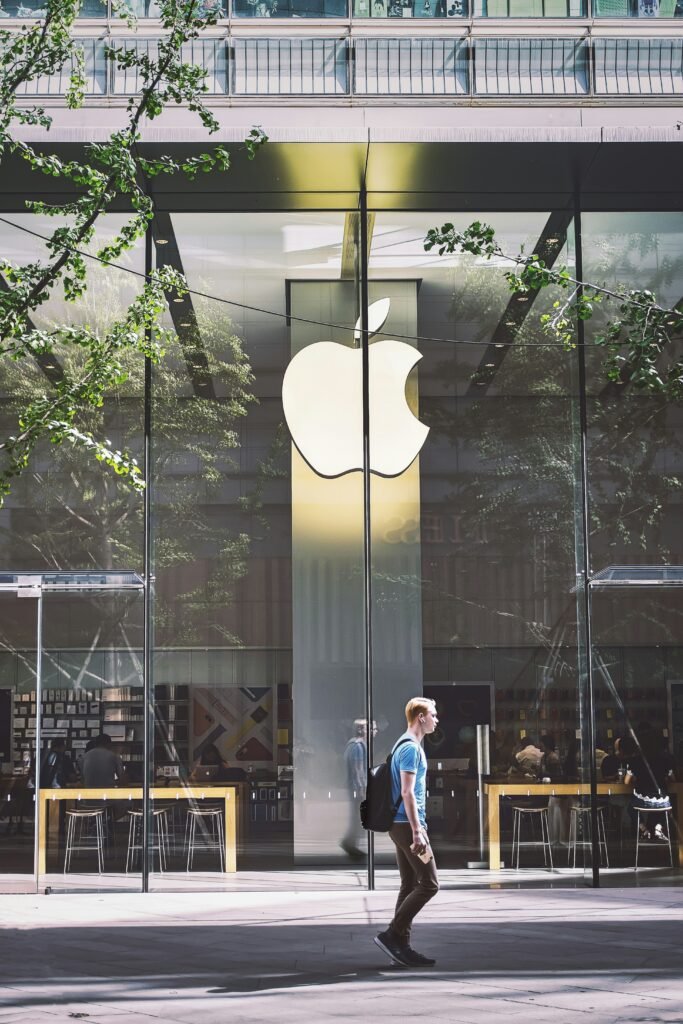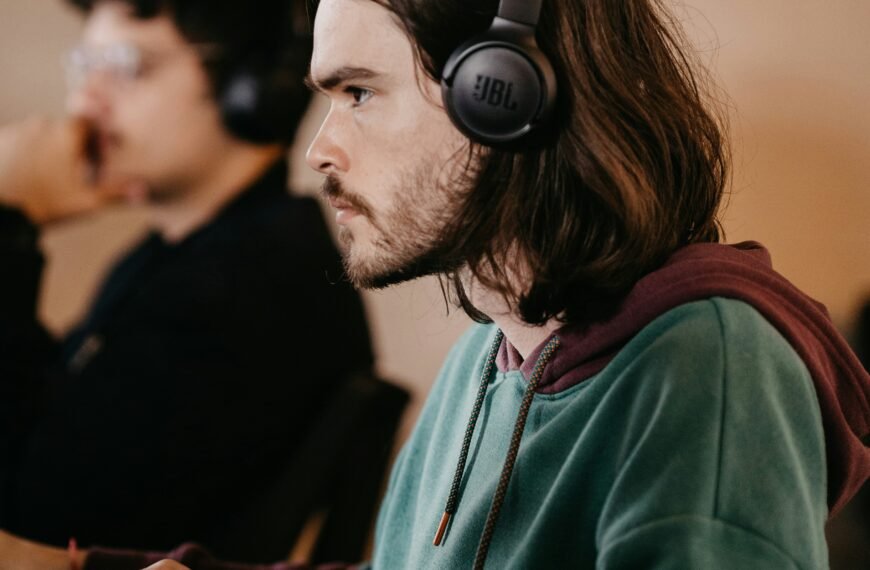In a recent statement, Meta CEO Mark Zuckerberg once again criticized the newly launched Apple Vision Pro VR headset. Zuckerberg firmly believes that Meta’s own Quest 3 is the superior device, and he made sure to express his opinion on the matter, mentioning several specific drawbacks he sees in the Vision Pro. He dismissed the higher resolution of Apple’s headset as unnecessary and highlighted concerns about its weight and motion blur. Additionally, he clarified that the Meta Quest is not just a gaming device, pointing out that apps for social interaction, browsing, and video playback are also highly popular on the platform. This ongoing rivalry between Meta and Apple in the VR space is generating significant attention and debate among tech enthusiasts worldwide.

Mark Zuckerberg’s Criticism of Apple Vision Pro
Mark Zuckerberg, the CEO of Meta (formerly known as Facebook), has once again voiced his belief that the Quest 3 virtual reality (VR) headset is superior to Apple’s Vision Pro. Despite the Vision Pro’s recent release, Zuckerberg remains steadfast in his conviction that the $3,500 device is inferior to the $500 Quest 3. In a recent post on Threads, Zuckerberg emphasized his preference for the Quest 3 over the Vision Pro, stating that if Meta’s future devices shared the same drawbacks as the Vision Pro, they would have “regressed significantly.”
This reaffirmation of his position comes as no surprise, considering Zuckerberg’s previous criticisms of the Vision Pro. He has specifically highlighted concerns about the device’s weight and motion blur, which he considers to be significant drawbacks. Additionally, while acknowledging the Vision Pro’s higher resolution, Zuckerberg argues that the tradeoffs made by Apple in achieving this resolution make their device worse in most other aspects. In Zuckerberg’s perspective, ergonomics and motion blur are of utmost importance, and he is willing to sacrifice some resolution in favor of these factors.
Confusion over Meta VR Engineers’ Statements
Analyst Benedict Evans has expressed confusion over statements made by Meta VR engineers, suggesting that the Vision Pro is essentially the same as the Quest. Evans believes that the Vision Pro is the type of device Meta aspires to create in the next 3-5 years, making it puzzling that their engineers would downplay its significance. However, Zuckerberg has responded by reiterating his belief that the Quest is better than the Vision Pro currently. He emphasizes that if Meta’s future devices exhibit the same drawbacks as the Vision Pro, it would be seen as a significant regression.
This disagreement highlights a difference in opinion within the VR community regarding the Vision Pro’s capabilities and its comparison to the Quest. While some believe that the Vision Pro represents the future of VR technology, Zuckerberg remains steadfast in his conviction that the Quest 3 is currently the better option.

Meta Quest Not Just a Gaming Device
Zuckerberg is also eager to dispel the perception that the Meta Quest is solely a gaming device. He argues that some of the top apps on the Quest are actually social, browser, and video player apps. He points to examples such as Horizon, VR Chat, Rec Room, and the popularity of browser and video player apps. Zuckerberg believes that labeling the Quest as solely focused on gaming is an outdated narrative and fails to acknowledge the diverse range of applications and communities on the platform.
This clarification by Zuckerberg highlights Meta’s intention to position the Quest as a versatile device capable of catering to various interests and needs, beyond just gaming. By emphasizing the social and multimedia aspects of the Quest, Zuckerberg challenges the notion that it is limited in its capabilities.
Comparison of Quest 3 and Vision Pro’s Specs
One of the key areas where the Quest 3 and the Vision Pro differ is in their specifications. The Quest 3 features two 2K LCD panels, while the Vision Pro boasts 4K microLED displays. This discrepancy in resolution is one of the main points of contention between Zuckerberg and Apple. While acknowledging that higher resolution is generally better, Zuckerberg maintains that the tradeoffs made by Apple to achieve this higher resolution, such as device weight and motion blur, make the Vision Pro inferior in his view.
Weight is another differentiating factor between the Quest 3 and the Vision Pro. The Quest 3 weighs in at 515 grams, while the Vision Pro ranges from 600 to 650 grams, depending on the Light Seal combination used. Zuckerberg considers the weight of the device to be crucial in providing a comfortable and enjoyable VR experience. The lighter weight of the Quest 3 contributes to its overall appeal, as users can wear it for more extended periods without discomfort.

Zuckerberg’s Previous Statements about Quest 3
Zuckerberg has previously outlined several reasons why he believes the Quest 3 is superior to the Vision Pro. First and foremost, he highlights the significant price difference between the two devices, with the Quest 3 being seven times less expensive than the Vision Pro. This affordability factor positions the Quest 3 as a more accessible option for a broader audience.
Additionally, Zuckerberg emphasizes the comfort and ergonomic design of the Quest 3 as factors that contribute to its superiority. The “crisper” visuals, precision controllers, and a “deeper” immersive content library are other advantages he cites when comparing the two devices. Overall, Zuckerberg is confident that the Quest 3 outperforms the Vision Pro in multiple aspects, making it the better choice for VR enthusiasts.
Reiteration of Zuckerberg’s Criticism
In a recent reaffirmation of his beliefs, Zuckerberg once again expressed his conviction that the Quest 3 is superior to the Vision Pro. He highlights the importance of ergonomics and motion blur, reiterating his concerns about the Vision Pro’s weight and motion blur. These factors play a significant role in providing a comfortable and immersive VR experience.
While acknowledging the higher resolution offered by the Vision Pro, Zuckerberg believes that Apple achieved this resolution at the cost of other important aspects, making their device inferior in his eyes. This reaffirmation underscores Zuckerberg’s unwavering stance on the matter and his dedication to ensuring that Meta’s VR devices surpass the competition in terms of overall experience and usability.
Implications for Meta’s Future
Zuckerberg’s criticisms of the Vision Pro and his preference for the Quest 3 have important implications for Meta’s future. By stating that if Meta’s devices develop the same drawbacks as the Vision Pro, it would signify significant regression, Zuckerberg is emphasizing the company’s commitment to continuous improvement and innovation. He aims for Meta’s VR devices to avoid the tradeoffs that he believes Apple made with the Vision Pro, such as increased weight and motion blur.
This commitment to avoiding regression and striving for continuous progress sets the stage for what users can expect from Meta’s future VR devices. Zuckerberg’s vision for Meta is to create VR experiences that surpass current offerings in terms of features, comfort, and overall user satisfaction. By learning from the perceived shortcomings of competitors, Meta aims to push the boundaries of VR technology and deliver an unparalleled user experience.
Quest 3’s Resolution and Tradeoffs
In acknowledging the higher resolution of the Vision Pro, Zuckerberg recognizes that more resolution generally improves the VR experience. However, he remains firm in his perspective that the tradeoffs made by Apple in achieving this higher resolution, such as increased weight and motion blur, overshadow the benefits. In his view, a clear win cannot be achieved by solely focusing on resolution without considering other crucial factors, such as ergonomics and motion blur.
Zuckerberg’s stance highlights the complexity of developing VR devices that strike a balance between various factors. While resolution is undoubtedly an important aspect, it cannot be prioritized at the expense of other crucial considerations. Ultimately, Meta’s approach to VR development is centered around creating devices that excel in all key areas, rather than focusing solely on one aspect at the expense of others.
Meta CEO’s Response to Perception of Quest 3
Zuckerberg continues to push back against the perception that the Quest 3 is solely a gaming device. Refuting this narrative, he highlights the top apps on the Quest, which include social, browser, and video player apps. Zuckerberg points out that social apps such as Horizon, VR Chat, and Rec Room are already popular on the platform, along with browser and video player apps. While acknowledging that fitness apps may not be as high on the list, he emphasizes that they have a passionate community as well.
This response from Zuckerberg serves to broaden the understanding of the Quest’s capabilities and usage. By highlighting the diverse range of apps and communities on the platform, he aims to dispel any misconceptions about the Quest being limited to gaming. The Quest’s versatility and the variety of experiences it offers contribute to its appeal as an all-encompassing VR device.
Critique of Vision Pro’s Specifications
The weight and motion blur of the Vision Pro have been significant points of critique from Zuckerberg. He believes that the weight of the device, which ranges from 600 to 650 grams depending on the Light Seal combination used, is a drawback that detracts from the overall user experience. Additionally, motion blur is an important factor for Zuckerberg, as he considers it crucial in providing a smooth and immersive VR experience.
Moreover, Zuckerberg dismisses the higher resolution of the Vision Pro as unnecessary given the tradeoffs he sees in other areas. In his view, Apple’s pursuit of higher resolution led to compromises that make the device worse overall. While resolution is an important aspect, Zuckerberg believes that it should not come at the expense of other equally vital factors such as weight, ergonomics, and motion blur.
Overall, Zuckerberg’s critique of the Vision Pro’s specifications underscores his commitment to creating VR devices that excel in all areas, without compromising on important factors that contribute to the overall user experience.
In conclusion, Mark Zuckerberg’s belief in the superiority of the Quest 3 over the Vision Pro is unwavering. He emphasizes the importance of ergonomics, motion blur, and overall user experience in his criticism of the Vision Pro. Zuckerberg’s response to conflicting opinions, his objection to the perception of the Quest as solely a gaming device, and his emphasis on Meta’s commitment to avoiding tradeoffs seen in the Vision Pro, all shed light on the direction Meta aims to take in the field of VR. As the CEO of Meta, Zuckerberg’s vision and convictions provide insight into the company’s future goals and aspirations in the realm of virtual reality.








